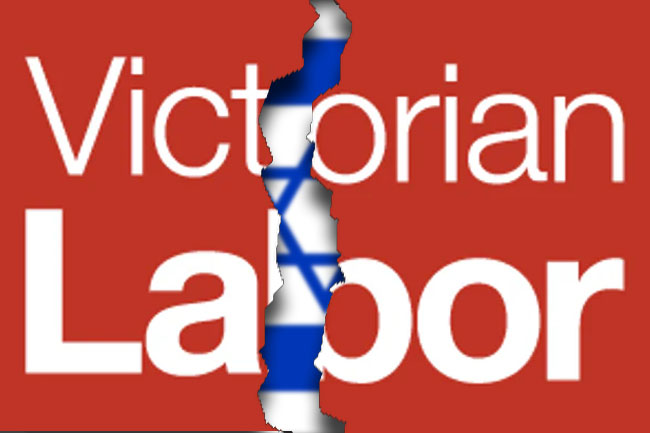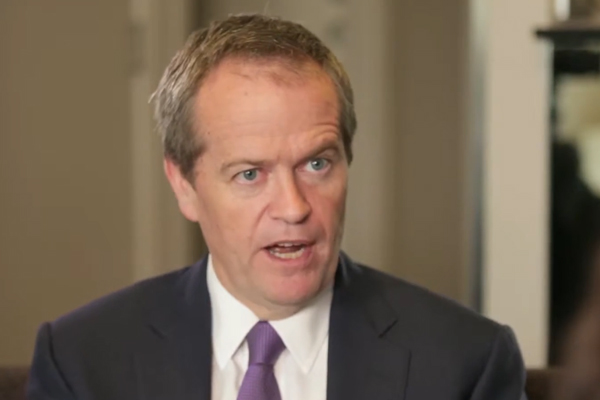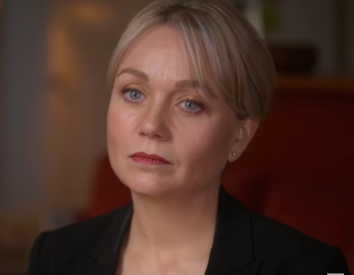Peter Wicks discusses the woes of the mainstream press, before making some "game-changing" revelations regarding the credit card claims against Craig Thomson.
THERE HAS been a lot of talk about the press lately; the manner in which it conducts itself and the way it handles the responsibility of shaping both public perceptions and public debate. I myself have been known to have the occasional shouty rant on the subject.
Without becoming too shouty, I thought that another post was warranted that looked at some aspects of the media the public are annoyed by, and some of the reporting and investigative work that has gone into the mainstream media's coverage of the HSU.
The way a story is reported is extremely important, and when the reporting is perceived as biased or deceptive there is usually a public backlash. Julia Gillard's famous misogynist speech directed at Tony Abbott was such a moment. Whether or not you agreed with her, there is no doubt whatsoever, that the speech received a lot of attention, most of it overwhelmingly positive.
The mainstream press, though, were overwhelmingly negative regarding the speech, despite this interpretation flying in the face of public opinion. When the public reacted to the coverage, the story quickly turned to the disgraceful sexist texts from Peter Slipper, although it turns out that the text everyone was complaining about actually came from Ashby, not Slipper. The story then became about which dictionary had the right definition of misogyny.
This is, of course, not the only time the Julia Gillard has suffered at the hands of the media. Who can forget the headline just before the last Federal Election, “Julia Gillard’s Price Promise”? This was splashed boldly across the front page of The Australian to show us all that Gillard had promised to price carbon and we should be scared. Who could forget? We all could it would seem, even the paper that printed it.
Despite the media’s best efforts, Gillard made it over the line, and that headline was forgotten. When the price on carbon was legislated, it was all about Gillard’s big apparent lie ― based on one statement that emerged from a media interview, selectively edited to suit the narrative.
It is not only Julia, either — Abbott has also fallen victim to the media. Many of us remember the “Shit Happens” story that was such big news when it happened. Abbott uttered those immortal words on camera and they were taken out of context and blown out of all proportion by Channel 7.
Despite the media making a sickening meal out of this, Abbott really has nobody to blame but himself for his reaction when asked for comment by Channel 7 after the story went crazy. Abbott showed us all how he would deal with trading partners and foreign dignitaries if things didn’t go his way.
People also question why the press seem to show so much contempt for social media. It's quite simple really, social media is killing them ― surely, but not slowly. Information is becoming available almost immediately via Facebook, Twitter and YouTube and people can figure out for themselves how they want to interpret that information. For those who like to read about issues with a bit of opinion or slant to them, there are plenty of blogs like this one, or sites like Wixxyleaks or The Hoopla that are great reads. Most of these sites don’t have the arrogance of the mainstream media, and if they lean to the left or right, they are usually quite open about it.
Another common occurrence we are seeing a lot these days is the tiny retraction after a huge headline. It is disgraceful that we can see a massive story on the front page of a major newspaper and a tiny retraction the next day, or often several days later. We saw this happen a few months back with The Australian and Julia Gillard's time at Slater and Gordon. It should be compulsory that the retractions or corrections are printed in the same position and in the same font and size of the original article, not hidden where nobody will notice.
Last week, many had serious questions over the relationship between the media and the police. This came about as a result of the police raid on the residence of Craig Thomson.
The police were greeted at their top secret raid by a vast array of journalists, including those from Fairfax, News Ltd, and a whopping satellite dish from Channel 7. Considering Thomson lives roughly two hours north of Sydney, it's safe to say these journos didn't just happen to be passing by.
It does not take a rocket scientist to see the issue with the press knowing so far ahead. If this had been a raid on Kathy Jackson's place, it is likely there would be no evidence left by the time the police arrived. One can only imagine the impact if the raid was on the premises of an armed gang or a serial killer.
Not only that, but the reporting of these events was also quite deceptive. Based on the media coverage, most people would have assumed that the policed raided Thomson's home and then his office. What you probably missed is that Craig Thomson allowed the police to go through his office (they had no warrant) and even offered – yes, that's right, offered – a sample of his handwriting. Not quite the way it was being portrayed by the Fourth Estate, who never seem to let the truth get in the way of a good story...
The media pack then moved on to Thomson's office, in a busy Central Coast shopping district. One member of the public even had the sheer audacity to confront the media, and he had some interesting responses from a few in the media pack. He was kind enough to write a blog post about it and his wife also took some photos. It seems those on the central coast are growing rather tired of the attention and being told that their vote is tainted; the man who confronted the press was even applauded by other locals who were there at the time.
I thought I would share a funny story I heard firsthand that was based around journalist staking out, or stalking, people of interest on the outskirts of Sydney. Apparently, after the HSU story first broke, a senior journalist from The Australian*.
The journalist was keen to get there early, maybe so he had time to squeeze in some breakfast on the way. He spent all day calling and knocking, while those inside ignored him ― not in the mood to talk to a reporter after seeing their names splashed all over the papers. Eventually, one of the occupants of the house left for the shops to get something and drove past him by the side of the road looking all hot and flustered.
Now, I'm not going to say the man would have trouble seeing the light if it was right in front of him, however it seems he would indeed have trouble based on this story. You see, he had showed up so early that it was still dark, and wanting to make sure no creatures sneaked up on him, he left his lights on.
Several hours later, he was discovering the new found reality that leaving the lights on uses power from the battery. He also made the gruesome discovery that the battery doesn't charge itself, it actually requires the car to be running.
He was spotted sitting in his car at the side of the road biding his time until roadside assistance arrived, like a beached whale waiting to be rolled back in the water. What a spectacle it must have been.
One complaint I often hear about our journalists is the way they request someone’s input or assistance with a story. A common practice is a message will come through on your mobile phone at 11am, after a series of missed calls by blocked numbers, that will say something like;
"Hi it's [insert journo name here] I am doing a story on a paedophile ring in which you have been implicated by unnamed sources. My story will be saying you are the head of this paedophile ring and it will be going to my editor at 4pm for tomorrow’s front page. You have until 4pm to call me to refute this."
Although the paedophile ring may be fictitious in this instance, the practice is the same, and it is a disgusting practice. Not all of the media do this, I should point out, but I am aware of many who do.
Even if someone does return the call to refute it, they often selectively edit your responses to make you sound guilty, quote you out of context, or just say you hung up or refused to comment on some questions.
Earlier, I spoke of the media getting on the high and mighty bandwagon over the meaning of the word misogyny. They don't like to see words or a phrase redefined is the claim. However there seems to be an exception to this unwritten rule.
That exception is when it involves Craig Thomson.
I have not read anything in the media about the civil charges laid against Sophie Mirabella in regards to the late Colin Howard's finances, for instance, and I know one of the reasons for this ― there is no such thing as “civil charges”.
Unfortunately, Craig Thomson has some civil matters to address in court, so The Australian had to invent a new term "civil charges" ― never mind that there is no such thing and it is not factually correct. Words like matters, or cases, or actions, don’t seem to sound guilty enough for Thomson it seems, so they just made up a new term.
One may have have assumed in legal matters that facts may be rather important? Not, it seems, over at The Australian.
The rest of the media followed the lead of the imbecile journalist and work experience editor over at The Australian that day. It seems that, to the rest of the mainstream media, that if The Australian says it, than everything you ever learnt at university should be disregarded and you should just follow blindly.
Another thing that has puzzled many people is why Kathy Jackson is so often the person the media go to for comment on HSU matters. This is a woman that is known to be a major factional player, has allegations against her regarding vast sums of members money that has seemingly gone to her, faces allegations of influencing and destroying evidence in a federal investigation, and is currently under investigation by Victorian Police for numerous alleged offences (finally acknowledged by the ABC's 7. 30). Allowing someone with such a dark cloud hanging over her to have airtime to plug her factional allies in the upcoming HSU elections should be seen as an utter disgrace.
I’d have more faith in the longevity of a Kardashian marriage than anything that comes out of Jackson’s mouth.
In fact, last week on the Sunrise programme on Channel 7, Kathy Jackson appeared with Craig Thomson's solicitor Chris McCardle, a link to the video is below.
Mr McCardle was given the impression that the format would be an open discussion ― a kind of moderated debate between himself and Jackson. This had apparently been agreed to by Jackson beforehand. However, upon arrival at the studio, McCardle was told that the format was to change to that of two separate interviews. Jackson, it seems apparent when the interview is viewed, had a script memorised she did not want to deviate from.
I was interested in asking why the format had been changed at the last minute and whether it was at Jackson’s request. Despite several attempts to contact the producers of Sunrise and after leaving a detailed message for the producers, I am yet to receive a return phone call. Perhaps I should have used the MSM technique and threatened to smear them if they didn't call me back in the next two hours?
I have to admire some of the investigative prowess of our mainstream investigative journalists however. Their ability to uncover the details of the much talked about Black American Express Cards has been truly astounding.
These are the cards that were allegedly given by a supplier, who held two of the Black Amex cards, while supplementary black cards were allegedly given to various union officials including Michael Williamson and Craig Thomson. This forms the basis of the mainstream press’ “Secret Commission” allegations. So the story goes at any rate...
So, how admirable is the investigative work really? I decided to have a peek, it took about 10 minutes of my precious time.
The Black American Express Card is in fact called the Centurion — and it was actually released in 2003. Strangely, this is many years after the MSM's claim that they were being used by way of secret commissions or kickbacks given to those within the HSU. The other interesting thing about these cards I discovered is that, when they were introduced by American Express, available to the account holder were two cards and one secondary card — not quite the number of cards the press has being spread about. Another thing that I discovered is that any extra cards after the secondary card would be supplementary Platinum cards, not Black Centurion cards.
To say that changes the game slightly would be an understatement. How did I find out this information, you may well be thinking?
Well, I phoned American Express; it was quite simple really. They are in the phone book and have quite helpful staff. It took me about 10 minutes.
You are now probably wondering where all of this information originally came from. Given our investigative journalists couldn't have found evidence of cards that didn't yet exist, one would assume it must have come from a delusional source, or a source who thinks facts are something you make up as you go along.
That source is none other than Kathy Jackson. Jackson is the one who kept bringing up these Black Amex cards in virtually every media interview. Given the ridiculous amount of spending we have seen on her union credit cards, she should be quite an expert on credit cards and their expenditure (although it was the members who paid her bills).
In my mind, and I could be wrong, the purpose of an investigative journalist is to investigate. In my mind the word "investigate" does not mean regurgitating the baseless allegations of a self proclaimed whistleblower, who is often more appropriately referred to as a turncoat. Especially, when that turncoat clearly doesn't know what she is talking about. As I have pointed out, one phone call to American Express would have confirmed her story to be lies or mistakes. Even lazy journalism should at least warrant checking things out before going to press.
I won’t get into a list of names of those I admire in the mainstream press and whom I have an enormous amount of respect for. You know who you are and I would no doubt forget one of you if I attempted a list of names. There are, however, those within your profession that are bringing it down ― and there are innocent casualties as a result.
Music and film are available free on the internet, most know how to find it, however the bulk of entertainment is still paid for because people respect the work that has gone into it. The same goes for news — people will still pay if they have respect for the product being sold. If you are printing crap, you should expect the same when it comes to a financial return.
As more and more journalists are being offered severance packages, or just being let go, it is too easy to point the finger and blame social media for the mainstream media’s woes.
I would suggest looking a little closer to home for real answers.
Like maybe a mirror.
* UPDATE 23/12/12: The account of The Australian journalist breaking down by the side of the road originally identified the journalist in question in what could be construed as a derogatory fashion. The journalist so identified also disputes the account of events. Independent Australia apologises for the name used unreservedly, however it published the account of the event in good faith based on reliable sources and stands by them.
This work is licensed under a Creative Commons Attribution-NonCommercial-NoDerivs 3.0 Australia License









